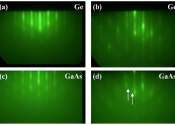New math model could help with systematic predictions like potential coronavirus mutations
Could a mathematical model help predict future mutations of the coronavirus and guide scientists' research as they rush to develop an effective vaccine? This is a possibility being considered by researchers at the USC Viterbi ...
Jul 3, 2020
0
99









